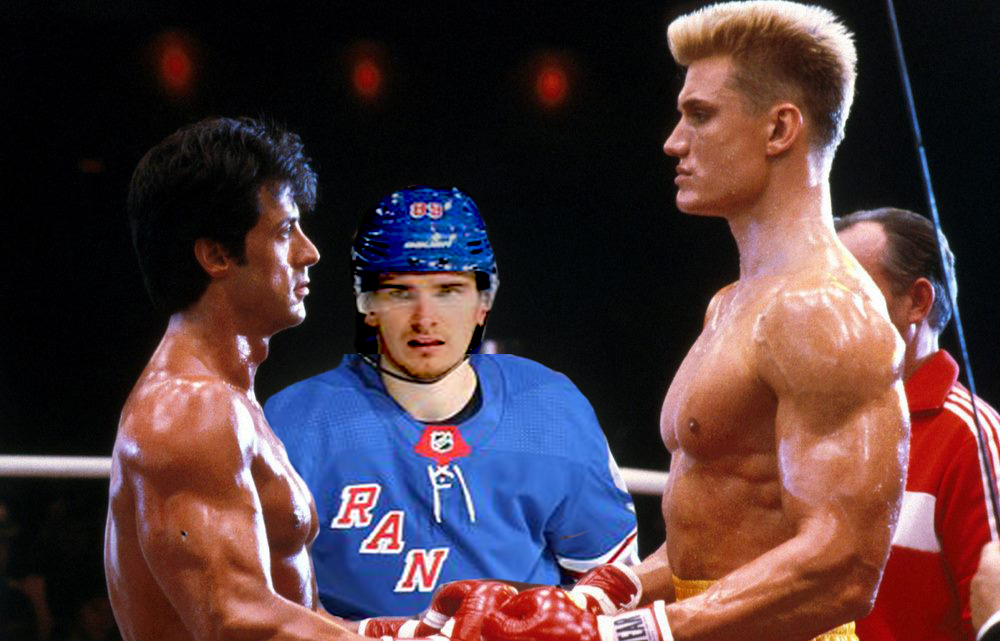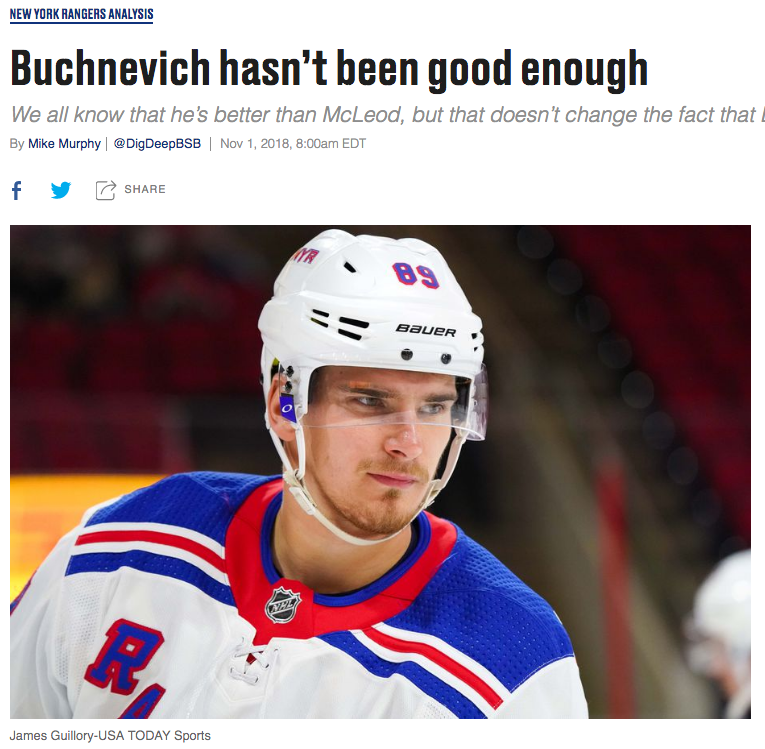
 NEW YORK, NY – Let’s not sugarcoat what has been bothering all of you for about a month now: It’s been a disappointing season so far for the New York Rangers’ Russian phenom, Pavel Buchnevich. Buch has been inconsistent and at times a bit lazy. His lackluster play has landed him on the healthy scratch list a number of times and the 23-year old Ruskie needs to be better or he may find himself on the dreaded bus to Hartford.
NEW YORK, NY – Let’s not sugarcoat what has been bothering all of you for about a month now: It’s been a disappointing season so far for the New York Rangers’ Russian phenom, Pavel Buchnevich. Buch has been inconsistent and at times a bit lazy. His lackluster play has landed him on the healthy scratch list a number of times and the 23-year old Ruskie needs to be better or he may find himself on the dreaded bus to Hartford.
Buchnevich definitely has the talent to be a solid NHL winger. He needs to work on the focus and work rate. This has been the case with several Russian-born players over the years. A lot of them have carried the stigma of being soft or lazy, while possessing unparalleled talent. It’s tough to see how a culture that can be so tough could produce players that can be considered soft. But it stems from the style of play in Europe which focuses on possession, passing, and finesse on a larger ice surface. The North American brand of hockey is more physical by necessity due to the smaller ice surface. It’s no wonder that some European players find it tough to adjust.

When the Iron Curtain began to fall in the late 80’s the door was opened for a new pool of talent to join the National Hockey League. Sergei Pryakhin was the first Russian play in the top North American league. A few years later a couple of other Sergei’s made history. Sergei Federov became the first Russian to win the Hart Trophy and Sergei Zubov and Sergei Nemchinov joined two other Russians (Alexander Kaprotsev, and Alexei Kovalev) as the first to have their names etched onto Lord Stanley’s Cup.
Sergei Federov was a great two-way player and was probably the best to ever come from Russia. The latest Russian sensation to hoist the Stanley Cup, Alexander Ovechkin is right up there with Federov. He might have more talent than Federov did but he didn’t become a complete player until recently. The knock on Ovechkin until a few seasons ago was that he didn’t defend. His 50 goals every season with a terrible +/- were telling. As Ovi matured and his desire to win grew, he learned to be a two-way player. He back-checks now, which is something he never did until recently.
If only Pavel could be as successful and eye-catching as some of his fellow Russian athletes:
P-Buch will hopefully mature faster. He doesn’t have Ovchkin’s talent to get him by. If he doesn’t pick up his play, he could wash out of the NHL a lot sooner than expected. This is Buch’s third season in the NHL, and while the strength, speed, and skill have improved, his overall development has stagnated. One has to believe that Buchnevich will sort it out sooner rather than later, but to be in this position three years in is alarming. A stint in the AHL may do him some good. It helped Mats Zuccarello a few years ago. He came back a different player. Zuc returned to the NHL as a player the Rangers couldn’t keep out of the lineup. Let’s hope the same happens for Pavel Buchnevich.
Come back tomorrow for a guy hoping to stay in our lineup, Junoir Blaber.

